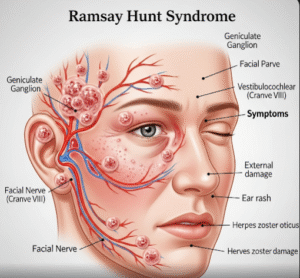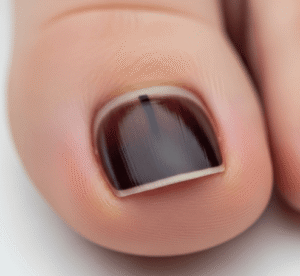Overview
Childhood trauma refers to emotional, physical, or sexual abuse, neglect, or household dysfunction experienced during childhood, which can have long-lasting effects on physical and mental health. Adverse Childhood Experiences (ACEs) are a standardized framework for understanding the impact of such events, including abuse, neglect, and family dysfunction, on long-term wellbeing.
In South Korea, mental health professionals, psychologists, and pediatricians increasingly recognize the importance of early detection and intervention for childhood trauma and ACEs to prevent lifelong mental, emotional, and physical consequences.
Key Facts
Highlights:
➡️ ACEs include physical, emotional, or sexual abuse, neglect, and household challenges such as domestic violence, substance abuse, or parental separation.
➡️ Children experiencing trauma are at higher risk of depression, anxiety, substance abuse, and chronic illnesses later in life.
➡️ Early screening and support can mitigate long-term impacts.
➡️ Trauma affects brain development, emotional regulation, and social skills.
➡️ South Korea has implemented school-based mental health programs, counseling, and therapy centers to address childhood trauma.
What is Childhood Trauma & ACEs?
Childhood trauma encompasses experiences that threaten a child’s safety or emotional wellbeing, which may include:
- Physical abuse: Hitting, shaking, or causing physical harm
- Emotional abuse: Humiliation, rejection, or verbal insults
- Sexual abuse: Any sexual contact or exploitation
- Neglect: Failure to provide food, shelter, medical care, or emotional support
- Household dysfunction: Exposure to substance abuse, mental illness, domestic violence, or incarceration of family members
Adverse Childhood Experiences (ACEs) are measured via standardized questionnaires assessing 10 categories of abuse, neglect, and household dysfunction. Higher ACE scores correlate with increased health risks, behavioral problems, and emotional difficulties later in life.
What Symptoms are Related to Childhood Trauma & ACEs?
Trauma and ACEs can manifest in multiple ways:
- Emotional Symptoms: Anxiety, depression, low self-esteem, mood swings
- Behavioral Symptoms: Aggression, social withdrawal, risky behaviors, substance use
- Cognitive Symptoms: Difficulty concentrating, memory problems, learning difficulties
- Physical Symptoms: Headaches, gastrointestinal issues, sleep disturbances
- Social Symptoms: Trouble forming or maintaining relationships, social isolation
Highlights:
➡️ Early signs may be subtle, like behavioral changes or emotional withdrawal.
➡️ Symptoms can persist into adulthood if unaddressed.
➡️ Trauma-informed care focuses on identifying and supporting children at risk.
What Causes / Possible Causes of Childhood Trauma & ACEs?
Highlights:
➡️ Abuse: Physical, sexual, or emotional harm inflicted by caregivers or others.
➡️ Neglect: Lack of basic necessities or emotional support.
➡️ Household Dysfunction: Parental substance abuse, domestic violence, mental illness, or criminal activity in the household.
➡️ Community or Environmental Trauma: Exposure to violence, accidents, or natural disasters.
➡️ Genetic and Epigenetic Factors: Trauma can influence gene expression, affecting stress response and emotional regulation.
➡️ Mechanism: Chronic stress in childhood can disrupt neurodevelopment, hormone regulation, and emotional resilience, increasing vulnerability to mental and physical health issues.
When Should I See My Doctor?
Highlights:
➡️ If a child shows persistent emotional distress, behavioral issues, or academic decline.
➡️ If trauma or abuse is suspected, immediate professional support is necessary.
➡️ For adults with unresolved childhood trauma, therapy can help address long-term effects on mental and physical health.
➡️ Early intervention improves outcomes, including emotional resilience, social functioning, and academic performance.
➡️ In South Korea, consultation with pediatric psychologists, psychiatrists, or trauma-informed counselors is recommended for evaluation and intervention.
Care and Treatment
Treatment for childhood trauma and ACEs involves multifaceted approaches:
Highlights:
➡️ Psychotherapy:
- Cognitive Behavioral Therapy (CBT) to reframe thoughts and behaviors
- Trauma-Focused Cognitive Behavioral Therapy (TF-CBT) for direct trauma processing
- Play therapy or art therapy for younger children
➡️ Family-Based Interventions:
- Parent training and counseling to improve family dynamics
- Supportive communication strategies to foster emotional security
➡️ School-Based Programs:
- Mental health support within schools
- Peer support groups and social skills development
➡️ Medication:
- Antidepressants or anti-anxiety medications may be prescribed for severe symptoms under careful supervision
➡️ Lifestyle and Supportive Care:
- Mindfulness, stress reduction techniques, and healthy routines
- Encouragement of social connections and hobbies for emotional resilience
Treatment Options in Korea
South Korea provides specialized mental health care for childhood trauma and ACEs:
Highlights:
➡️ Child and Adolescent Psychiatry Clinics: Diagnosis and treatment of trauma-related disorders.
➡️ Trauma-Focused Counseling Centers: Individual, group, and family therapy programs.
➡️ School-Based Mental Health Programs: Early screening, counseling, and psychoeducation.
➡️ Integration with Pediatric Care: Routine check-ups and monitoring for trauma-related symptoms.
➡️ Multidisciplinary Approach: Collaboration among psychiatrists, psychologists, social workers, and educators.
➡️ Medical Tourism & Multilingual Support: Therapy, counseling, and follow-up care available for international families seeking treatment in Korea.













